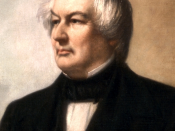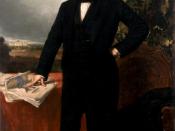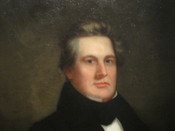Gwinnett County Public Schools (GCPS) is committed to its mission of pursuing excellence as it strives to become a system of world-class schools. Gwinnett County Online Campus is yet another example of the cutting-edge initiatives that mark this school system as an educational leader-- across the state, the region, and the nation.
After temporarily resolving the problems of Reconstruction and Industrialization, Americans began to resume the course of expansion. The horrors of the Civil War had interrupted the original Manifest Destiny that began in the 1840s. Now, as pioneers settled the last western frontiers, expansionists looked yet farther to the west -- toward Asia and the Pacific.
A leading expansionist, Captain Alfred T. Mahan, cautioned that the Pacific could "be entered and controlled only by a vigorous contest." As head of the Naval War College, Mahan believed that America's survival depended upon a strong navy. He argued that a strong navy would require island possessions to serve as naval bases.
The time had come, Mahan wrote, for Americans to turn their "eyes outward, instead of inward only, to seek the welfare of the country."
American ships had long been active in the Pacific. The New England whaling fleets scoured the ocean in search of their prey. The China trade had been enriching Yankee merchants since 1784. Japan, however, had effectively closed its doors to outsiders, and it restricted foreign ships to a small part of Nagasaki.
Photo of Matthew C. Perry
More about President Millard Fillmore, including a picture
Commodore Matthew C. Perry, commander of the United States naval forces in the China seas, was a staunch expansionist. Back in 1852 he warned President Fillmore that the British, who had already taken control of Hong Kong and Singapore, would soon control all trade in the area. Perry...


